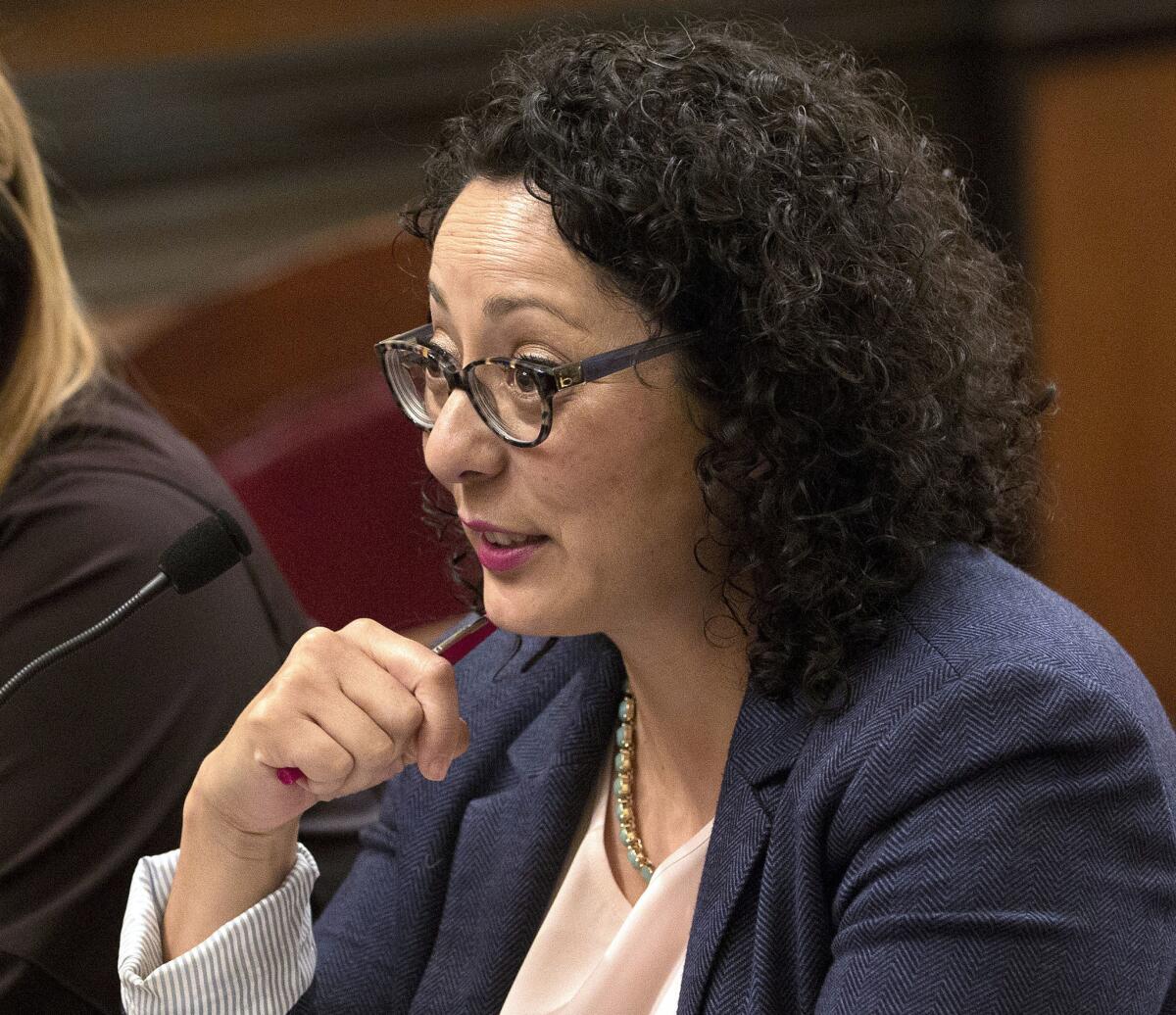Slugfest at a California conference has inspired a politician to propose a new law

- Share via
It wouldn’t be the most conventional way for politicians to help create a law.
In May, two councilmen got into an argument at a conference in Indian Wells that turned into a brawl. The slugfest ended up involving four of the politicians from the City of Commerce and left one councilman, Leonard Mendoza, lying on the ground unconscious, his arms and legs splayed out for everyone to see on social media.
There were ripple effects: the California Contract Cities Assn., the nonprofit advocacy group that hosted the conference, suspended Commerce’s membership and a criminal investigation was launched by the Riverside County Sheriff’s Department, though no charges have been filed.
Now, Assemblywoman Cristina Garcia (D-Bell Gardens), whose district includes Commerce, plans to introduce legislation aimed at giving the California auditor the authority to examine the finances of government lobbying organizations such as Contract Cities.
“These groups are extensions of governments and therefore taxpayers themselves — who don’t expect governmental activities in drunken brawls and mismanagement of funds,” Garcia said in a statement.
The seminar held in Indian Wells that brought elected officials from all over the state had education panels, but it also included a golf tournament and swag bags containing wine and tickets for free alcoholic drinks at sponsored events, Garcia said. The cost to attend was $600 per person.
“For local governments and school boards to be bankrolling parties and padding personal bank accounts is a slap in the face to California residents, who are often working-class and struggling to make ends meet,” she said.
It certainly isn’t unusual for bad behavior by local officials to inspire the creation of new laws.
The most well known recent example in Southern California happened as a result of the 2010 corruption scandal in the city of Bell. The revelation of huge salaries for some council members and city administrators — including one making well over $1 million a year — led to new laws, including pension reform and requirements to post government salaries on official websites.
The city of Vernon avoided being disincorporated by the state, but the politically colorful industrial town inspired the second season of HBO’s “True Detective.”
Were it to come to fruition, Garcia’s proposed legislation would expand Assembly Bill 187, which established the High-Risk Local Government Agency program within the state auditor’s office. The program, created as a result of the salary scandal in Bell, has led to the identification of more than a dozen government agencies with fiscal problems such as Compton, San Gabriel and San Fernando, to name a few. As of now, the state does not have direct oversight of taxpayer dollars in local government associations.
Marcel Rodarte, executive director of the California Contract Cities Assn., said the organization was not contacted by Garcia or her office about any potential concerns regarding its operation.
“We are disappointed about the gross mischaracterization and slanderous comments directed at the California Contract Cities Assn.,” Rodarte said. “The [association] has advocated to strengthen local control for more than 63 years and makes every effort to be transparent and prudent with all taxpayers and other funds invested into the organization.”
Long before the shoving, cursing and punching, Mendoza and Mayor Pro Tem Ivan Altamirano, who was accused of sucker-punching his colleague and starting the melee, had been at odds with each other over marijuana businesses operating in their city.
The issue had divided not only the council but residents of Commerce, a working-class industrial town southeast of downtown L.A. Many residents believe this tension played a key role in the fight.
Mendoza said that he was in the middle of a conversation when Altamirano interrupted. He said he told his council colleague to step away. Shortly after, Mendoza said he felt a blow and woke up in a hospital. In the room were his wife and a law enforcement officer.
An attorney for Altamirano disputed Mendoza’s account and said his client was the first to be punched.
The brawl also involved Mayor John Soria, Councilman Hugo Argumedo and about seven other people, including political consultants, government vendors and elected officials. Soria, Argumedo and Altamirano could not be reached for comment.
The Sheriff’s Department submitted the case to the Riverside County district attorney’s office in July 2019 for possible prosecution, said John Hall, spokesman for the office. The agency would not say why the case has not progressed since.
“All I can say is that it is still under review,” Hall said.
In a phone interview Friday, Mendoza said the seminar feels more like a weekend party because so few elected officials attend the panels and vendors entertain officials.
That sentiment has been echoed by council members from other cities who told The Times they have stopped attending the seminars.
Mendoza said he hopes officials will now take conferences more seriously.
“This is going to be a good thing,” he said of Garcia’s proposed bill. “The way I see it, if something gets audited, then whatever is wrong will get fixed.”
More to Read
Sign up for Essential California
The most important California stories and recommendations in your inbox every morning.
You may occasionally receive promotional content from the Los Angeles Times.














